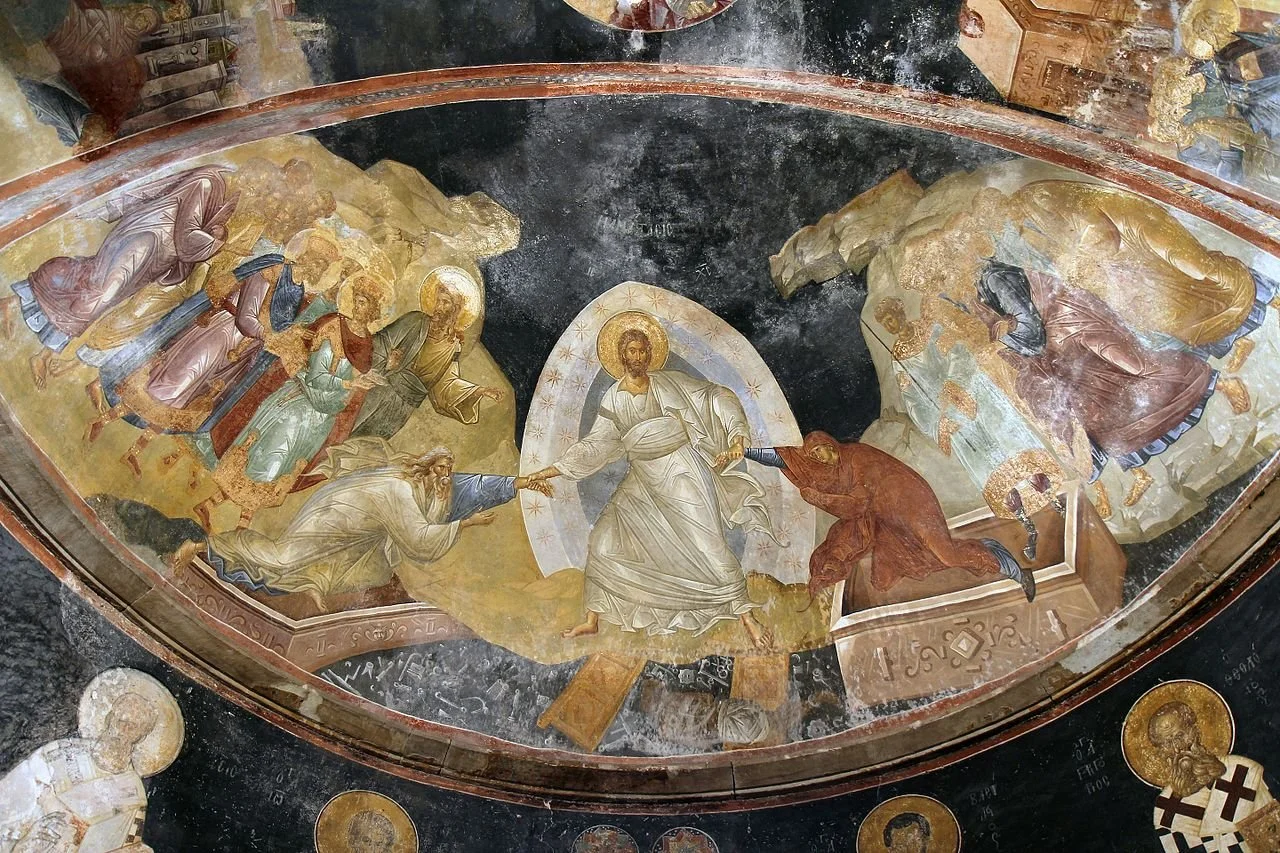Theology 101: What is Purgatory and how did it spark the Protestant Reformation?
Anastasis fresco, Chora Church, Istanbul. Photo: Till Niermann via Wikimedia Commons.
The idea of Purgatory is one of the biggest differences between Catholics and Protestants.
The Catholic Church teaches that Purgatory is a temporary place or state where people go to after they die. It’s for people who love God and are saved, but still have small sins or faults when they pass away.
[Think of it as a final spiritual cleaning that gets them perfectly ready to enter Heaven. It is not Hell, and everyone who goes there is guaranteed to eventually get into Heaven. ]
Where did this idea start?
The practice of praying for people who had died began millennia ago, before Christianity. We can trace some of its roots in Greek and Roman religion and philosophy.
Some early Christian writers thought about what happened to believers who weren’t perfect yet. They wondered if there was a final step of testing or refining.
By the Middle Ages, the idea was developed into the formal church teaching we know today.
The concept of Purgatory became a problem because of something called indulgences.
Because Purgatory was a place of temporary suffering, people worried about their deceased loved ones. The Church began to teach that by performing certain good deeds, like giving money to the Church, a person could receive an indulgence.
[An indulgence was essentially a certificate that promised to lessen the amount of time a soul had to spend in Purgatory.]
This system grew corrupt. Traveling salesmen were hired by the Church to sell these indulgences to raise money for church projects, like rebuilding St. Peter’s Basilica in Rome. These salesmen made promises that were much bigger than the official teaching, famously claiming things like, “As soon as the coin in the coffer rings, the soul from Purgatory springs.”
This practice angered many people, but especially a German priest named Martin Luther.
In 1517, Luther challenged the church by writing his famous 95 Theses. He strongly argued against the idea that a person could buy or earn salvation or forgiveness. Luther believed that this whole system—Purgatory, indulgences, and the buying of spiritual favors—was an abuse of people's faith and went against the core message of the Bible. He saw it as forcing people to pay huge amounts of money to save their deceased relatives.
This fight over indulgences was the spark that officially started the Protestant Reformation.
Reformed churches, like Presbyterians, reject the idea of Purgatory for two main reasons, which are the same reasons Luther stood against it.
First, we argue the idea is not clearly found in the Bible. Protestants believe the Bible is the only rule for what we believe. We point out that Jesus told the thief on the cross, "Truly, I say to you, today you will be with me in Paradise." This suggests that the saved go straight to Heaven.
Second, the biggest reason is that Purgatory seems to say that Jesus’ work was not enough. Reformed theology teaches that when Jesus died on the cross, he paid the full price for every single one of our sins. His sacrifice was perfect and complete.
Because of this complete payment, a person who trusts in Jesus is already perfect in God’s eyes. When they die, God’s grace instantly finishes the job of making them holy, and they go right into the presence of God. There’s no need for an extra stop or a final punishment because Jesus took all the punishment for us.
